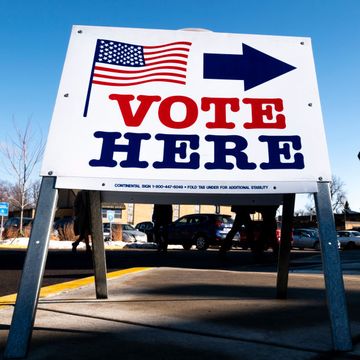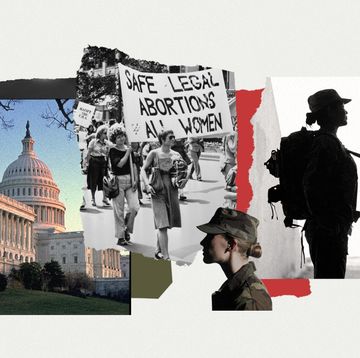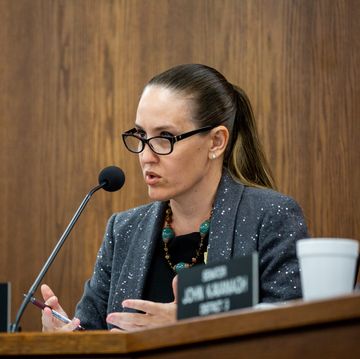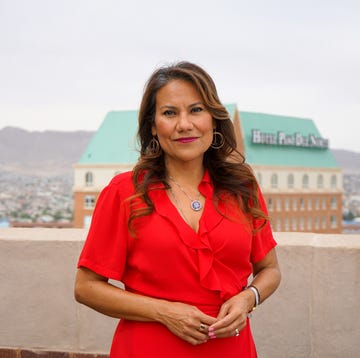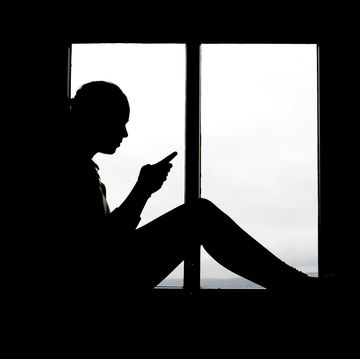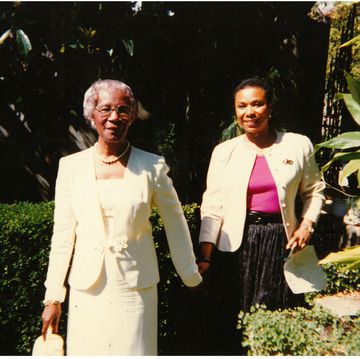I heard the word “sh*thole” on National Public Radio this morning so you know it’s the End of Days. I’m pretty sure there’s a verse somewhere that reads “When a dulcet-toned NPR anchor coos a previously unprintable vulgarity, lo, it shall be Apocalypse O’Clock.”
Perhaps there is something to be mourned from the loss of a sense of decorum that we experienced this week. The Washington Post broke the sh*t seal with its stunning report about the president’s vitriolic assessment of Haiti, El Salvador, and all of the continent of Africa. The article (and, in a dark flourish, its concomitant Push alert) notified the nation of two things: 1) the president, that fount of eloquence, grew frustrated in an Oval Office meeting about immigration, asking why people from countries he deemed “sh*tholes” kept coming here and wishing instead that more Norwegians would come to America; 2) that we should stop pretending we’re anything other than what we are.
At the risk of sounding like part of the conservative spin machine, it’s worth pointing out that this dude is not the first president to express this sort of sentiment in the Oval Office. He’s probably not even the first to call other countries, particularly countries with non-white populations, sh*tholes (LOL, why do I keep putting the asterisk? Nothing matters!) If you thought this was an anomaly, I have bad news for you about history! President Trump is a racist but he is not the first First Racist.
But make no mistake: he is a racist. It does no one in this country any good to litigate whether a person who rants about people of color, cities with large black and brown populations, and countries that have destroyed by the brutal reach of colonization with a near-pathological venom, is a racist. As a country, we’re obsessed with giving racist people second chances, third, 100th chances; that’s the true American dream—every racist can one day grow up to be a president who makes a half-hearted apology for misspeaking.
He’s not even good at it. He’s Sam Rockwell in Three Billboards… without a problematic redemption arc. He’s a stock character, one with which this country is overflowing. So, while it was a surprise to hear s*it*ole (I’m just putting asterisks anywhere now) on the radio, it was not a surprise to hear that that word came from the mouth of a sitting president in reference to other countries with majority black and brown populations. The stance that the nation, as a whole, is in any way moral or an arbiter of justice, is just ludicrous.
This country is like a production of The Crucible that ends with someone shouting “The Aristocrats!”
Perhaps the shithole was inside of us all along.
But why am I talking about this anyway? It’s yesterday’s news, which means it literally doesn’t exist anymore. What’s perhaps most shocking about this week is that we probably won’t remember it. Prompted by a trivia question in the future we may remember the vague details, the outline, the shadow of the thing. But this week, in which the president defined his immigration stance by a country’s shitholesqueness, among other plainly outrageous things, probably won’t leave a mark. Well, that’s an incorrect phrase. It won’t leave a distinct memory. It will be like one of those cuts that fades with time and with it the exact details of the injury, the shard of glass around which new skin grows, the scar tissue, like gristle, weighing down the body from the inside out. We may not remember it but it will leave a mark.
And that’s the danger of Donald Trump—like the generations of racists who came before him and lazily supervised the making of this country, he will soon be gone but his fingerprints will be all over everything. We see it in our cities, where municipal buildings are named after people who championed red-lining, where monuments and parks are named after Confederate generals. We see it in our discourse, in which President Obama was forced to show his papers to prove his citizenship, but news anchor hedge and equivocate over calling Donald Trump a white supremacist, despite his long and well-documented history of saying and doing things a white supremacist would say or do.
Most maddeningly, we see it in ourselves, the gradual moving of the line of decency, the daily confirmation that we are in the Bad Place, the gaslighting, the loss of hope. And then, the disappearance. These news events happen, they take over the cycle, they nick us in our souls, and then they vanish. And we’re left with our damage and our rage and the sneaking suspicion that there’s something wrong with us because we’re angry all the time, we see racism and misogyny in places where others blithely don’t, we find it harder and harder to “get over it.”
There is little virtue in being shocked about reality. There is nothing to be gained in declaring “This is not my country!” It is your country; it always has been. The recourse, as I see it, is to declare “I am not taking this with me into the future.” Not as a denial, but as an intention. We must choose what will shape us; if we don’t, we will find ourselves changed, broken, and have no idea why.
A year ago this time, already mourning the exit of the Obamas, fearful of what kind of presidency Trump would herald, I looked at Donald Trump with trepidation. I knew that his words had been coarse, racist, misogynistic, and xenophobic. I had no idea what sort of actions waited behind those words. I knew that the office of the President, when wielded with skill, could be powerful and punishing. I had no option but to expect the worst.
A year later, I think of him differently. I’m reminded, oddly, of Bojack Horseman’s addled mother. Lost in the mists of a failing memory, prone to cutting remarks and casual offense, still possessing a psychic hold over those in her sphere but no longer in control of it. That’s the president to me today. He is the human embodiment of the feeble, deteriorating specter of racism on which this nation was built. He is white supremacy’s greatest weapon and also the most damning evidence of its brokenness.
In his book The Fire Next Time, James Baldwin writes of whiteness, “They are, in effect, still trapped in a history which they do not understand; and until they understand it, they cannot be released from it. They have had to believe for many years, and for innumerable reasons, that black men are inferior to white men. Many of them, indeed, know better, but, as you will discover, people find it very difficult to act on what they know.”
Fifty-six years after the book’s publication, many are still struggling to act on what they know. Nothing in yesterday’s news, or the news from the day before, or the week before, taught me anything I didn’t already know.
The only thing I’m taking with me from this week’s news cycle is the thing that launched it at 10:15pm Eastern on Sunday night, the speech that launched a thousand hot takes and turned sister against sister as the comments section debated whether Oprah should run for president. I’m not taking the controversy with me, I’m taking the words themselves. This isn’t my way of saying “The racist isn’t my president; my president loves bread and was best friends with Maya Angelou.” This is my way of saying, “We have to protect ourselves; we have to be aware of the narrative that is being built by us, around us, about us.”
As I wrote at the time, Oprah’s speech was the most public declaration of hope we’ve had in over a year. Though we may have a clearer memory of the controversy that sprang up after it, the speech itself is pure, powerful, and must not be lost to history. It was intersectional, weaving her identity as a black person with her identity as a woman, dovetailing the struggles of both groups to achieve respect, receive fair treatment, and to overcome abuse. It was, in some ways, a preemptive declaration of victory over an industry and a country plagued by sexual misconduct, misogyny, and racial bias. She not only offered herself, a black woman entrepreneur and a sexual assault survivor, as an example, but she called out to the millions of girls watching her, speaking their examples into existence. They would one day stand where she was standing. She foresaw it. She knew it to be true.
This week Oprah spoke to our present, our past, and to our times yet to come. She saw them and she reveled in them. I’m reminded of the poet Neil Hilborn who declares triumphantly, “I saw the future, I did, and in it I was alive!” It’s a simple statement, but it shouldn’t be taken for granted. In this moment, in every moment, it’s crucial to remember that your existence, now and in the future, is revolutionary. Your hope is revolutionary.
This is the week NPR said shithole; this is the week the man in the White House toothlessly complained about reality again; and this is the week that Oprah reminded us that there is deep, world-changing power inside of each of us and accessible to each of us. She reminded us that visibility, particularly of marginalized peoples, has ramifications that will outlast all of us. She reminded us that words have power and that the power of words to do good is far greater than those that cause harm.
Accept that nothing the president says will ever really surprise you, not at your core. Hope will surprise you. So, perhaps just for today, choose hope.





